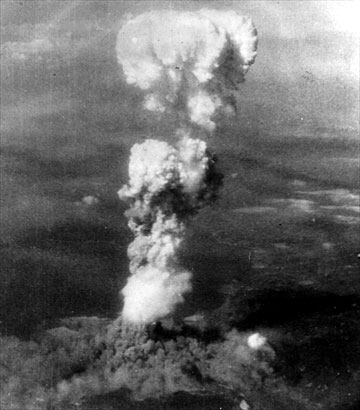 The insignia of the U.S. nuclear missileers Stahl interviewed in this reportCBS 60 Minutes' Lesley Stahl reports on the status of U.S. nuclear-tipped missiles at silos located across five states on the Great Plains. This includes antiquated communications and computer equipment, as well as hardware problems. The report comes in the aftermath of a major shake up in the U.S. military's nuclear missile command and corps, based on a competency test cheating scandal, as well as illegal drug use, and even a drunken binge by the top U.S. nuclear missile commander while on official duty in Moscow, Russia.
The insignia of the U.S. nuclear missileers Stahl interviewed in this reportCBS 60 Minutes' Lesley Stahl reports on the status of U.S. nuclear-tipped missiles at silos located across five states on the Great Plains. This includes antiquated communications and computer equipment, as well as hardware problems. The report comes in the aftermath of a major shake up in the U.S. military's nuclear missile command and corps, based on a competency test cheating scandal, as well as illegal drug use, and even a drunken binge by the top U.S. nuclear missile commander while on official duty in Moscow, Russia.
The report features an interview with the author of the book Command and Control, Eric Schlosser. He has been named an Alliance for Nuclear Accountability DC Days award winner this year.
Unfortunately, the 60 Minutes report does not question the wisdom of U.S. reliance on "deterrence," based on "Mutually Assured Destruction" (MAD). This is all the more ironic, because 60 Minutes' own report touched on a number of incidents where U.S. nuclear weapons nearly caused disasters on U.S. soil. One involved a nuclear missile rocket fuel explosion caused by a dropped socket wrench, necessitating the evacuation of an Arkansas town. Another involved the accidental drop, and near detonation, of a hydrogen bomb in North Carolina, a few days after John F. Kennedy's presidential inauguration. A more recent incident, in 2007, involved the unauthorized -- and unguarded -- transfer of six nuclear warheads, by plane, from North Dakota to Louisiana. This led to the firing of the U.S. Air Force's top two officials.
60 Minutes also did not question the wisdom of U.S. plans to "modernize" its nuclear weapons arsenal, to the tune of $355 billion over the next ten years. The Republic of the Marshall Islands has filed lawsuits against the United States of America in federal district court in San Francisco -- as well as against the other countries in the world with nuclear weapons arsenals, at the International Court of Justice in The Hague, in the Netherlands -- for their failure to negotiate, in good faith, the abolition of their nuclear weapons arsenals, as called for by the four decade old Nuclear Non-Proliferation Treaty.
Physicians for Social Responsibility (PSR) has reported that the "exchange" of "only" 100 Nagasaki-sized nuclear weapons between India and Pakistan could cause a "mini" Nuclear Winter, and crop failures worldwide, resulting in the deaths of a billion people, or more, due to starvation.
As President John F. Kennedy famously said: "Every man, woman and child lives under a nuclear sword of Damocles, hanging by the slenderest of threads, capable of being cut at any moment by accident, or miscalculation, or by madness. The weapons of war must be abolished before they abolish us."
The irony of the U.S. nuclear missileers' insignia (above left), captured for a fleeting moment in the 60 Minutes report, is conveyed by this quote from Noam Chomsky's book Pirates and Emperors: "A captured pirate was brought before Alexander the Great. 'How dare you molest the sea?' asked Alexander. 'How dare you molest the whole world?' the pirate replied, and continued: 'Because I do it with a little ship only, I am called a thief; you, doing it with a great navy, are called an emperor.'"





 December 13, 2017
December 13, 2017
